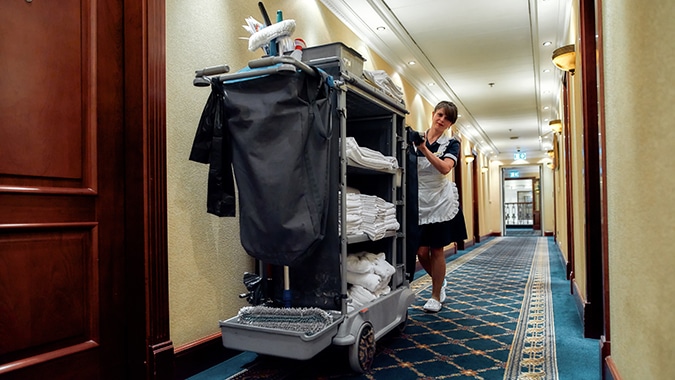There have been two bills signed into law by Gov. Phil Murphy in the past year that mandate the retention of employees in certain sectors in certain situations.
But a third bill that would require a much larger number of employers to retain a wide range of service employees for 90 days – following a change of ownership in their service contracts – is now getting some attention.
Bill S-2389 (Singleton, D-7; Zwicker, D-16) was up for a discussion, but not a vote, during a Senate Labor Committee hearing this week.
NJBIA Vice President of Government Affairs Alexis Bailey said many New Jersey employers should be engaged, if not alarmed.
“This is the most far reaching of these types of bills we have seen,” Bailey told the committee in oral testimony on Thursday. “When I talk to our members, I tell them if you haven’t read the bill, you’re probably in it.
“We see this as the third iteration of collective bargaining through statute, which takes away that opportunity for businesses to choose who they’re going to hire when they’re changing their service contracts.”
Employers and facilities captured under this legislation include multi-family residential buildings with more than 50 units, commercial centers or office buildings that are more than 100,000 square feet, as well as primary, secondary schools or tertiary schools.
It also includes cultural centers such as museums, convention centers, arenas, performance halls; industrial sites; pharmaceutical labs; airports; train stations; hospitals; nursing care facilities; senior care centers and other healthcare provider locations; state courts; and warehouse and distribution centers.
Also under the legislation, service employees include any non-managerial or professional employee who works 16 hours or more per week in connection with the care or maintenance of a building or property.
This includes, but is not limited to security, front desk, maintenance, grounds maintenance, stationary fireman, elevator operators, window cleaners and janitorial service staff.
At airports, it includes passenger-related security services, cargo related and ramp services, in-terminal and passenger handling and cleaning services.
In schools, it includes food service workers.
In her written testimony to the Senate Labor Committee, Bailey said there was no need for such broad legislation with burdensome terms for businesses.
“There are already mechanisms in place such as collective bargaining and the WARN Act to protect employees during a change of service contract,” she said. “All employees are also eligible for unemployment benefits in the event of a layoff.
“Additionally, service contract vendors already have the opportunity and often do freely choose to interview and hire the employees hired under previous contracts if it would be the most advantageous for their business.
Further, the bill would actually criminalize members of the business community if they violate the law. It allows successor employers to be subject to fines or imprisonment of up to 90 days for violations of the law, which Bailey called “egregious.”
“This criminalization of employers is an unnecessary and unfair overreach,” Bailey said. “Employee retention and seniority systems in private businesses should not be dictated by statute.”
“Employers have a right to determine who they hire and retain as they see fit in order to make necessary operational decisions.”

